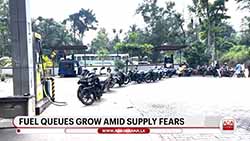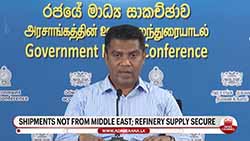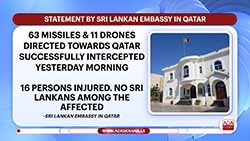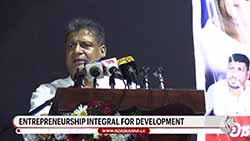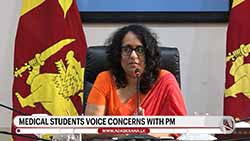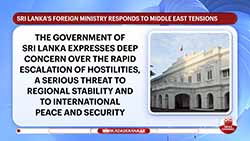Young refugees in TN keen on trying luck in Sri Lanka
June 19, 2015 10:04 pm
As World Refugee Day falls tomorrow, several young Sri Lankan Tamils born and raised in camps in Tamil Nadu are eager to go back to the land of their ancestors to try and connect with their roots and get a sense of belonging.
Though refugees returning to Sri Lanka on their own volition happens on and off, especially after the end of the civil war there in 2009, a new trend that is catching up is of young men who have never seen their homeland keen on trying their luck there.
A total of 3,04,269 refugees have come to Tamil Nadu in four phases since 1983 when the ethnic strife intensified. The refugee flow has, however, stopped since 2013, four years after LTTE was decimated.
So far, about 2,12,000 refugees have gone back on their own with government and with UNHCR assistance.
Twenty-three years old S Saravanan, who was born and brought up in Gopalasamudram camp near Tirunelveli, told PTI, “I want to go back, try and rebuild my future in Sri Lanka and I am making preparations to leave in a couple of months.”
Asked what attracted him there, he said, “It is my home country, it would help connect with (our) roots, our family has some land holdings in our native Jaffna and I had always been eager to see and live in the land of my ancestors.”
A Diploma holder in computer hardware and networking, Saravanan feels the island nation will offer him good opportunities.
A Akilan, born in Kulathulvaipatti camp in Tuticorin district, said, “I am considering the option of going to Sri Lanka quite seriously.”
The 24-year-old has recently completed his Communications Engineering degree and feels that Lanka may offer him the “right opportunity to grow.”
Akilan had a tough time finishing his degree as his father passed away in Sri Lanka unable to cope with the ravages of war in 2009 there.
Speaking over phone from Vavuniya in Sri Lanka, Mayuran who went there two months back said, “I am excited to be here in the land of my forefathers, I even visited my village near Mullaitheevu and saw the place where my house once stood.”
The 29-year-old post graduate said he got a national identity card after arriving there and is currently working for an NGO.
R Pathmanathan, now 39, arrived in Tamil Nadu in 1990 as a 14-year old along with his parents as refugees. He said “despite people’s love and excellent government support, we still face challenges as we are only refugees.”
Raised in several camps across Tamil Nadu, he now lives in Gummidipoondi camp and says that going to Sri Lanka to start life anew deserved serious thought, though there may be difficulties.
However, there are also many who do not want to go back to Sri Lanka for reasons of their own like R Selvaraj, who lives in a Gopalasamudram camp.
“I do not want to go there, though there is a lot of talk of reconciliation and peace (in Sri Lanka). Let us see if the situation changes on the ground for Tamils,” he said.
Treasurer, Organisation for Eelam Refugees Rahabilitation, S C Chandrahasan said, “The decision to go back to Sri Lanka should be voluntary. Going back has always been a dream as we have duties towards rebuilding our country there.”
Son of legendary Sri Lankan Tamil leader S J V Chelvanayagam, hailed as ‘Thanthai Selva’ (father Selva), Chandrahasan says the governments of India and Sri Lanka should help refugees as settling down afresh involves several challenges.
Asked about young men from Tamil Nadu camps willing to go to Sri Lanka, he said, “They can be agents of reconciliation as they were not exposed to the pains of war and trauma and were brought up in India in an ambience of peace and harmony.”
As of now, according to Tamil Nadu government, there are 1,02,055 refugees belonging to 34,524 families in the state, of whom 64,924 belong to 19,625 families in 107 camps.
In 2011, Tamil Nadu Chief Minister Jayalalithaa had announced extending benefits of all welfare schemes implemented in the state, to Sri Lankan Tamil refugees.
Besides cash assistance, 20 kg of rice is provided every month free of cost to each refugee family.
Each family is also entitled to purchase sugar, wheat, pulse and oil under the Public Distribution System at subsidised rates.
Source: PTI





